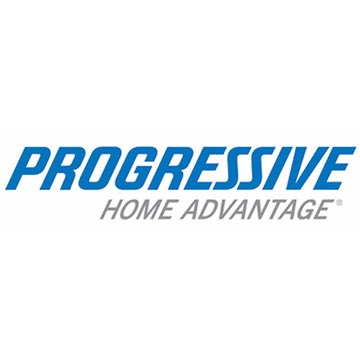Transportation Network Companies-TNC's
Since December 2014, there were approximately 163,000 active Uber drivers, offering about 1 million paid rides a day in more than 250 cities around the world!
Start a Quote Online Find an Agent
Uber, Lyft & Sidecar—the three top names in the 'ride-share' services industry. Since December 2014, there were approximately 163,000 active Uber drivers, offering about 1 million paid rides a day in more than 250 cities around the world! Via a mobile app, passengers in search of a ride may locate drivers in close proximity by providing their location. A connection is made, the passenger picked up and taken to their destination. At the conclusion, through the same mobile app, payment is made by a credit card. Quick, simple and done! And it's inexpensive!! Too good to be true? Well, it does have some ups and downs. Lets look at a few of the issues that have appeared so you can decide if you want to drive-or ride. Since Uber appears to be the main player, we'll track their record.
The ride-share companies-TNC's-would rather have you think of them as technology companies. As Uber wrote in a legal filing, "Uber operates no vehicles, and does not hold itself out or advertise itself as a transportation service provider. In fact and law, Uber does not provide transportation services of any kind and does not own, lease or charter any vehicles for the transportation of passengers. On the contrary, Uber is a technology company that licenses the Uber App to transportation service providers. The transportation service providers pay a fee to Uber to use the software technology; the passenger of the transportation service provider pays the transportation service provider for the transportation services received". The cab companies along with government agencies and regulators disagree! They feel Uber is a taxi company. How governments have chosen to deal with this has varied widely. Some, like California and Colorado, don't see the point in completely outlawing TNC's especially since they've proven incredibly popular. However, other states legislators and taxi operators are locked in a contentious battle. They argue that the TNC's free lance drivers are dangerously unregulated and must be forced to meet standards for insurance coverage, commercial licensing, criminal background checks, and identification similar to the requirements the cab and limousine drivers must meet. If they are just facilitating a relationship between a third-party driver and a user, as they claim they do as "technology companies", then they shouldn't be liable for much, if anything.
Lets look at the insurance issues. They say they don't own, lease or charter any vehicles for the transportation of passenger. Therefore, we could apply the term "non-owned" to the vehicles used in association with their name. Uber apparently realized that also, and ultimately contracted for insurance coverage with James River Insurance Company, a surplus lines insurer. That policy specifically insures against "non-owner autos". Well, that covers Uber—now what about the owner/driver that is looking for or has a passenger? His personal auto policy isn't very user friendly! The liability coverage "public or livery conveyance" exclusion reads: "We do not provide liability coverage for any 'insured'; For that 'insured's' liability arising out of the ownership or operation of a vehicle while it is being used as a public or livery conveyance." Effective 10/1/2015, the following ISO wording will also be added to this exclusion: "This includes but is not limited to any period of time that "insured" is logged into a "transportation network platform" as a driver, whether or not a passenger is "occupying the vehicle". To soften the effect, two endorsements are also being offered by ISO to allow for a partial "buy-back" of part of the exclusion, but still, with no coverage while transporting a passenger!
The afore mentioned James River Ins. Co. is supposedly offering some help, in the form of excess coverage. This means an owner/driver will still have to report an accident to their personal auto insurer, get a declination of coverage and then report the accident to Uber. A certificate of insurance issued on the 'current' James River policy defines a "Rideshare Driver" and further stipulates when the "rideshare driver" is covered-which appears to include "en route to a pickup location or transporting to the final destination". A second part of the insurance certificate appears to provide coverage (for a much lower limit) while the "rideshare driver" is "signed on but has not yet hooked up with a passenger". All of this is excess coverage.
The 11/4/2014 issue of "The New Yorker" reports: "Last New Year's Eve, an Uber driver named Syed Muzaffar was driving his car in San Francisco while logged into Uber's app for drivers when he struck and killed a six-year old girl who was in a crosswalk with her mother and brother. The next day, Uber distanced itself from the accident, pasting a somewhat terse message on its Web site that offered condolences but also noted that "this tragedy did not involve a vehicle or provider doing a trip on the Uber system". Uber says it has made – "some changes in their insurance coverage since."
Insurers who are responding to the issues with TNC's are offering commercial type insurance that is broader in coverage than the personal auto policy. They are much more expensive too! Insurers are generally slow to respond to change and the TNC's have evolved rather quickly. Hopefully there will be a fair and comprehensive coverage solution to an innovative and attractive method of "ridesharing".
A couple other notes! Remember, you are recognized by Uber as an 'independent contractor' and therefore are not covered by workers' comp. You will also probably receive a 1099K. This was created by Congress in 2008 to require banks and other entities that provide credit and debit card acceptance services to send this form to merchants with whom they do business. The form, which goes to the IRS, shows the gross revenue a merchant received on payment cards the previous calendar year. There is no exception for small amounts; even $1 must be reported.
Finally, adding to the rest of their problems, California's labor commissioner challenged Uber entire business model. They said that a driver who connects with customers through the Uber Technologies, Inc. App must be considered an employee! The ruling, filed June 16th in San Francisco state court, stemmed from a dispute with a former driver. "The defendants hold themselves out as nothing more than a neutral technological platform, designed simply to enable drivers and passengers to transact the business of transportation," the commission said in the decision, filed alongside Uber's appeal notice. "The reality, however, is that defendants are involved in every aspect of the operation". Now, June 22nd, I see that, as a result of the commission's ruling, two LA drivers have filed a class action lawsuit alleging labor violations against the ridesharing company. At least one thing is certain; their attorney's are getting their workout!

We'll Shop Around So You Don't Have To
Start a quote by filling out our online application providing us with the basic information we need to perform a quote. It only takes a few minutes and we'll respond within one business day.
Start a Quote Contact UsWe're Hiring
We're looking for industry experienced folks to join our team. Contact us at 406-652-4180 to inquire.
Top 10 Reasons You Need Cyber Liability Insurance
No matter what type of business you run, where you're located, or how much time you spend online – your business needs Cyber Liability Insurance.
business riskProfessional Liability Insurance
Almost every business or firm can become liable for injury to others resulting from a condition on its premises or arising out of its operations, products, completed work or actions of its employees.
business riskAnti-Indemnity Statute
Indemnity clauses generally are more common to construction projects primarily due to the risks involved maintaining a safe work environment.
business riskOur Insurance Partners











— Protecting Everything You Value Most —
Darnielle Insurance is available to answer your questions. We are located at 1320 28th Street West, Billings, MT 59102. Give us a call at 406-652-4180.